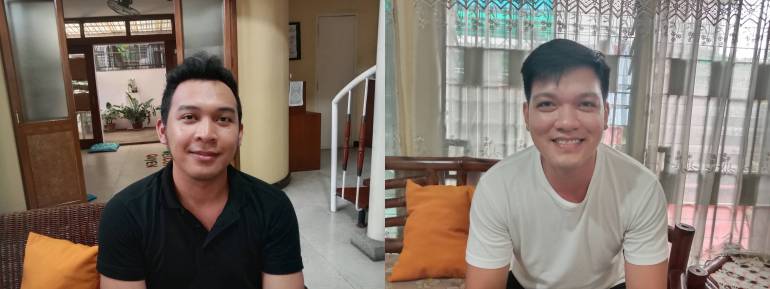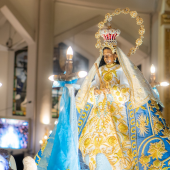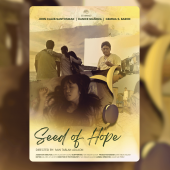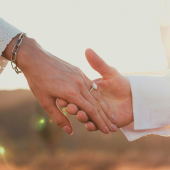National Seafarers’ Day in Philippines

Every last Sunday of September, the Philippines celebrates National Seafarers’ Day.
Former President Fidel V. Ramos declared it in Presidential Decree 1094 of 1997. Its purpose is to give due recognition to the vital role played by our Filipino seafarers in the development of the Philippines as a maritime country.
This year, September 25, the Philippines marks the National Seafarers’ Sunday organized by the Apostleship of the Sea, an agency of the Catholic Church. It is also sometimes known as Stella Maris (Star of the Sea), and its patron is the Blessed Virgin Mary.
The Apostleship of the Sea is the ministry of the Catholic Church offering hospitality and pastoral care to seafarers, fishers, and their families.
The Church remembers its Filipino seafarers who, on account of their particular employment at sea, are often deprived of the grace and comfort of the Eucharistic celebrations.
Catholics are urged to pray for their safety and the grace of the Spirit so that the bonds of love and unity with their families may remain steadfast in their faith and become witnesses of the values of Christian living in all circumstances. It is also a day to remember those who have died at sea.
The Philippines has, for decades, supplied the largest share of labor on the world’s cargo ships, from food to music and sports, said a report in the New York Times ("The Lonely and Dangerous Life of the Filipino Seafarer," Nov. 30, 2019).
They have worked in the global shipping industry for decades, moving 90 percent of global trade.
In 1980, the Philippines launched an organized campaign to train Filipinos for careers at sea, as cargo ship work is well-paid.
International shipping companies market Filipino seafarers were marketed to international shipping companies by employment agencies. Government agencies took over the management of their deployment.
To meet the global demand for more seafarers, marine colleges were established to train people for the job.
In recent years, more seafarers from Vietnam, Myanmar, and China have been hired. Nevertheless, Filipinos account for approximately 400,000 of the world's 1.6 million seafarers, according to the New York Times report. In 2018, these workers remitted the US $6 billion to the Philippines.
On the occasion of National Seafarers’ Day, RVA News talked to two Filipino seamen.
They are Charl John Sabay, a 28-year-old from Cebu, Central Philippines, and Juan Carlos Lopez, a 29-year-old from Mindoro, the seventh largest and eighth-most populous island in the Philippines.
Sabay holds a Bachelor of Science in Marine Engineering and has been a sailor since 2013 (nine years as a sailor). He is a single man who has worked as an oiler and was recently promoted to the fourth engineer.
Lopez has served for four years as chief cook on the ship. He finished a Business Administration course and then took up culinary arts for six months. He has a partner, and they have a two-year-old child. Excerpts:
Why did you become a seaman?
Charl John Sabay: I want to travel the whole world for free. This would give me an opportunity to explore people’s cultures and history and learn more.
Since my father was a seaman, I want to know what it takes to be a seafarer.
Juan Carlos Lopez: Para makaahon sa kahirapan (To get out of poverty). Overcoming life's hardships leads us to work on ships. My elder brother is a seaman, so I wanted to follow him.
What are the challenges you face as a seaman?
Charl John: In the beginning, getting along with others on the ship and adjusting to their work is challenging. As time passes by, we learn how to navigate with people. It comes with life experience.
Juan Carlos: When we are on board, one of the most challenging things is "homesickness." We miss our family members and loved ones.
How do you keep in touch with family and loved ones?
Juan Carlos: We video call most of the time with my family, as I have a two-year-old child.
Charl John: I call my parents, siblings, and other relatives or friends via chat or phone.
What’s your routine at work?
Juan Carlos: I am the chief cook on the ship. I wake up early in the morning. I cook three times a day: breakfast, lunch, and dinner. After that, I rest and talk with my family online. I work 12 hours every day. Around 6 a.m., I prepare breakfast, which is at 7 a.m.
What is your good or happy experience as a seaman?
Juan Carlos: Traveling around the world gives me much joy.
Charl John: Meeting new people and traveling the world is exciting, despite the many challenges.
Do you collect anything as memorabilia and why?
Juan Carlos and Charl John: We collect fridge magnets in different countries where we go. As we see them on our fridge, we are reminded of the places we have already been.
How do you practice your Catholic faith?
Juan Carlos: I need to pray before and after going to work and before I retire. I pray for divine protection for each other and the ship on which we work on a daily basis.
Charl John: I pray before going to bed and when I wake up. I always have with me the Bible that my father gave me. Sometimes, I read it. I also pray the rosary alone. I listen to the audio rosary and pray with it.
Did you witness tragedies at work?
Juan Carlos: We often face big waves in the sea. It is difficult to work during those times.
Charl John: I recall when there was a fire in the engine room, as I was assigned as a firefighter. When I entered the engine room with the extinguisher, I could not see anything because of the black smoke. It was difficult to contain the fire. So, we packed up and reported. We had to use CO2 to stop the fire. It was a challenging experience. It's a good thing we weren't hurt.
At what age do you plan to retire as a seafarer?
Juan Carlos: I was thinking that after five years, I would want to have savings already. But I cannot say that we don’t know the future. I can get used to the work and maybe stay a long time. It depends on how life goes. If nothing happens in my life for how many years, I can’t tell when I might retire.
Charl John: Probably at the age of 55.
Do you encourage others to be sailors?
Juan Carlos: As for me, I don’t want anyone to follow in my footsteps. I don’t want them to experience homesickness. It is good to seek land-based jobs and spend time with your family.
During vacation, I spend two or three months with my family. It is worth it to be with family members, and no time is wasted.
Charl John: If someone wishes to be a seafarer, it is good to pursue it for the sake of family and a better future for children. Through their work, one can also support their family.
Did your family discourage you from being a seaman?
Juan Carlos: Not my family, but other people. My family supports me being a seaman.
What do you bring on board the ship?
Juan Carlos: My personal needs are met. I have a rosary with me and a very small bible. It needs a magnifying glass, though. It reminds me to pray.
Charl John: Vitamins, medicines, clothes for work, cell phone, and computer. Others bring their maintenance medicines, some who are fond of reading bring books, and others bring seeds to plant, like vegetables. I also bring a Bible and rosary.
What were the challenges as a seaman during the pandemic?
Juan Carlos: It was difficult. I was stuck in Manila for quite a time, when COVID-19 was at its peak and protracted lockdowns affected us all, like others.
Charl John: Thank God, I was already on board the ship a month before the lockdown. There are many restrictions. We are not allowed to get off the ship when we reach another country.
What are the changes brought about by the pandemic?
Juan Carlos: There are other countries that do not allow us to enter.
Charl John: We cannot roam around outside; countries are closed. But as of now, the restrictions are fewer. However, our company still doesn’t allow us to go out or roam outside even though countries are open.
How do you manage when you get sick on the ship?
Juan Carlos: I don’t have any substitutes. I cannot get sick. Even if I don’t feel well, I still do my work. While I am cooking, I also start to clean so I can finish early. At night, I want to rest, but I still chat with my family. Once I board the ship, my work never ends. I don’t have any days off.
Charl John: We have a first aid kit on board. We manage ourselves. I have days off on Saturdays and Sundays. I can rest.
How long is your contract?
Juan Carlos and Charl John: Our contract on the ship is more or less eight months.
Is it true you are paid better as a seafarer?
Juan Carlos and Charl John: Regarding our salaries, we consider them higher compared to a job in the Philippines.
We have health benefits like the Social Security System, a state-run social insurance program for the Philippines' private, professional, and informal sectors; and Philhealth insurance, while we are working on the ship. But it ceases when we get off the ship. There is no security in our work.
We have a fixed monthly salary when we sign a contract with an agency. The overtime will just be added.
If we die on land, we don’t get any monetary compensation from the agency or ship.
Do you save your earnings?
Juan Carlos: Saving is the most challenging thing for me. On the ship, I don’t spend at all since our needs are provided for. However, I have many expenses when going home. Money earned finishes fast. But I make sure that I still have money to spend as I need to go back to work.
Ayaw ko sumakay na mangungutang ako (I don’t like borrowing money upon going to the ship). My lifestyle has changed now compared to before. For now, I don’t really have savings. I arrived last April. My child got sick. Life is not easy, but we live in hope. - With a report from Jennibeth Sabay
Radio Veritas Asia (RVA), a media platform of the Catholic Church, aims to share Christ. RVA started in 1969 as a continental Catholic radio station to serve Asian countries in their respective local language, thus earning the tag “the Voice of Asian Christianity.” Responding to the emerging context, RVA embraced media platforms to connect with the global Asian audience via its 21 language websites and various social media platforms.














